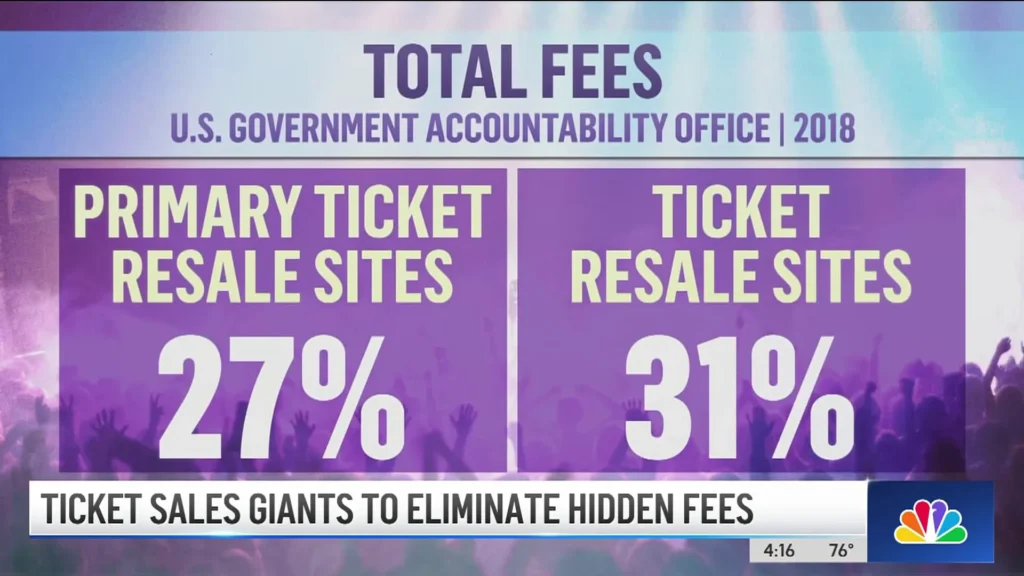Ticket Scalping Wars: How Resale Bots Are Gouging Fans and What US Regulators Are Finally Doing About It
Hey folks, let’s be real—nothing boils my blood quite like trying to snag concert tickets only to watch them vanish in seconds, then pop up on resale sites at triple the price. I’ve been there, refreshing Ticketmaster like a maniac for my favorite bands, just to end up empty-handed while some shadowy reseller makes bank. It’s not just annoying; it’s predatory, and it turns live events from joyful escapes into elitist luxuries. But here’s the good news: In 2025, US regulators are cracking down hard on these ticket-hoarding middlemen and the platforms that enable them. From FTC lawsuits to a Trump-era executive order, things are heating up. I’ll break it down, share my takes, and sprinkle in some fiery social media reactions because, honestly, the fans’ rage is the real soundtrack here.
The Scalping Scourge: How Resale Buyers Game the System
Ticket scalping isn’t new—it’s as old as supply and demand—but tech has supercharged it. Resale buyers, often organized groups or bots, swarm primary platforms like Ticketmaster to bulk-buy tickets the moment they drop. They use fake accounts, VPNs, and automated scripts to bypass purchase limits, then flip them on secondary markets like StubHub or Viagogo for massive markups. Take Taylor Swift’s Eras Tour: In 2022-2023, the demand crashed Ticketmaster’s site, but scalpers still scooped up thousands, reselling at 5-10x face value. This isn’t free-market magic; it’s rigged, leaving genuine fans out in the cold.
In my opinion, this hurts everyone except the profiteers. Artists lose control over pricing and fan experiences—Swift herself called it “excruciating”—while venues and platforms rake in fees from both ends. Low-income fans? Forget it; events become pay-to-play for the wealthy. And don’t get me started on the black market risks: fake tickets, fraud, and no refunds. Data shows scalpers grab 20-50% of high-demand tickets, inflating prices by 27% on average. It’s a monopoly-fueled mess, dominated by Live Nation-Ticketmaster, which controls 70-80% of major US venues and ticketing.
Regulatory Reckoning: FTC and DOJ Step Up the Fight
2025 has been a banner year for anti-scalping action, with regulators treating this like the antitrust emergency it is. The Biden-era momentum carried into the Trump administration, blending bipartisan frustration over junk fees and bots.
The DOJ’s Antitrust Hammer on Live Nation-Ticketmaster
The big kahuna is the Department of Justice’s (DOJ) ongoing lawsuit against Live Nation Entertainment (parent of Ticketmaster), filed in May 2024 and rumbling through 2025. Joined by 30+ state attorneys general, it accuses the company of monopolizing the live entertainment industry through exclusive deals, anticompetitive practices, and barriers to rivals. Updates this year? In January, Live Nation tried (and partially failed) to dismiss claims, with a judge ordering DOJ revisions but keeping the core case alive. By March, they settled a separate shareholder suit for $20 million over misleading statements. In May, DOJ and FTC launched a joint inquiry into unfair ticketing practices, seeking public input on everything from dynamic pricing to bot evasion.
Personally, I love this—it’s about time we busted up this behemoth. Live Nation’s “ecosystem” locks out competition, jacks up fees (often 30-50% of ticket price), and enables scalping by not enforcing limits effectively. A breakup could mean more choices, lower costs, and fairer access. Groups like the National Independent Venue Association (NIVA) are pushing for splitting it into four companies, and I say hell yes.
FTC’s Crackdown on Bots and Deceptive Practices
The Federal Trade Commission (FTC) is going after the scalpers themselves. Just this week (August 18, 2025), they sued Key Investment Group, a Baltimore reseller, for using bots and thousands of fake Ticketmaster accounts to snag over 9,000 Eras Tour tickets, reselling them for millions in profit. This violates the 2016 BOTS Act, which bans circumventing ticket limits with automation. The FTC alleges they masked IP addresses and used stolen identities—straight-up fraud.
Earlier, in May, the FTC’s new Rule on Unfair or Deceptive Fees kicked in, banning “bait-and-switch” pricing where hidden fees inflate costs at checkout. They even warned StubHub ahead of the NFL season to comply or face fines. State AGs are piling on too, like Arizona’s Kris Mayes joining the Live Nation suit and suing others for monopolies.
My take? The FTC’s finally using teeth on the BOTS Act, which was toothless before. But enforcement gaps remain—scalping laws vary by state, and bots evolve faster than regs. Still, this Swift-specific suit feels poetic; her fans’ outrage sparked the whole antitrust wave.
Trump’s Executive Order: A Surprising Ally?
In a plot twist, President Trump signed an Executive Order on March 31, 2025, “Combating Unfair Practices in the Live Entertainment Market,” directing the FTC and DOJ to ramp up enforcement against scalpers, enforce the BOTS Act, cap resale prices, and probe tax evasion by resellers. Backed by celebs like Kid Rock, it aims to “end price-gouging by middlemen.” Critics call it weaponized regulation that could hurt resale markets, but I see it as a win for fans—finally, some transparency and caps to stop $2,500 VIP flips.
Fan Fury: Social Media Reactions and Broader Impacts
The internet’s ablaze with this stuff. On X, users are calling for Live Nation’s breakup: “Live Nation/Ticketmaster can go fuck themselves. ANTITRUST!!!” rants one poster. Swifties are still litigating, with a judge allowing amendments to their class-action suit. Another highlights MAGA influence: “Live Nation/Ticketmaster apparently has hired guns (MAGA friends) roaming the DOJ halls to deflect blame.” And NIVA’s push to splinter the company got reposts galore.
These steps could lower prices 10-20% if successful, boost indie venues, and empower artists. But risks loom: Overregulation might stifle markets, or scalpers go underground. In my view, it’s worth it—fans deserve better than this rigged game. If you’re fed up, support the inquiries, boycott resales, or hit up your reps. Live music should unite us, not divide by wallet size. What say you—ready for the encore?




There is a soft cohesion in the text, where each phrase connects seamlessly to the next, forming a unified and immersive reading experience without rigidity or constraint.